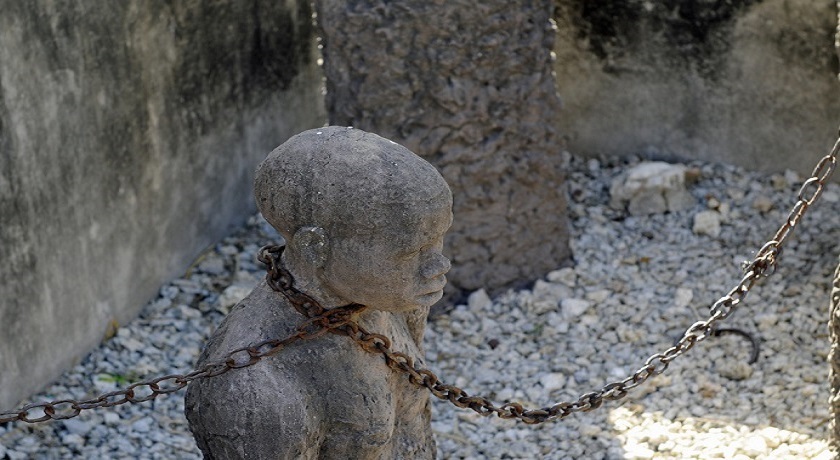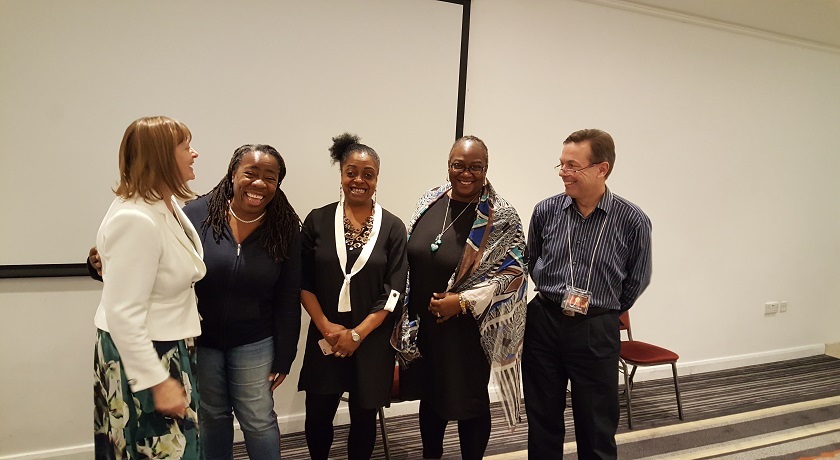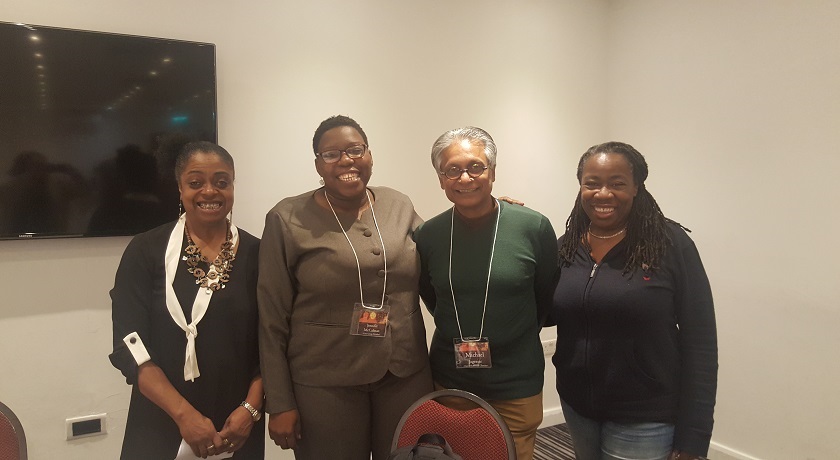 A project exploring the legacies of the transatlantic slave trade was launched by the Council for World Mission (CWM) on 12 November.
A project exploring the legacies of the transatlantic slave trade was launched by the Council for World Mission (CWM) on 12 November.
The hearings centre around the legacies after slavery of place and people, and include acts of lament and repentance, and the sharing of historical and social analysis.
The programme started with a hearing in London, and three more are planned for 2018 – in Ghana, Jamaica, and the US.
Members of the United Reformed Church who supported the event in London, included Mr Alan Yates, Moderator of the General Assembly, the Revd Dr Michael Jagessar, Secretary for Global and Intercultural Ministries, the Revd Dr Carla Grosch-Miller, theologian and educator, Darnette Whitby-Reid, a team leader at High Cross URC Tottenham, London, and Luton-based church related community worker (CRCW) Karen Campbell.
Dr Jagessar said: ‘The URC welcomes the CWM Legacies of slavery of hearing as a necessary process. This is timely response to a long overdue call by the Black communities of the Caribbean, UK and the US to address the legacies of the transatlantic slave trade.’
One criticism highlighted at the event was that in the past Britain has often told its history as if it’s only involvement in slavery was to bring about its abolition.
Zafar Khan, Chair of Luton’s Council of Faiths, who works closely with Ms Campbell, added: ‘The history of India and Africa is much more credible if it is told by people who have been impacted by colonialism.’
 So the testimony of members of the Black British and Asian community who grew up in post-colonial Britain was heard at the event.
So the testimony of members of the Black British and Asian community who grew up in post-colonial Britain was heard at the event.
Explaining what life was like, Ms Campbell said: ‘I noticed that there were people who didn’t like us, because of the colour of our skin … some people said why don’t you just go home, but this (UK) was my home … I needed to be twice as good in order to be equal. I was fortunate to grow up in the black church, surrounded by strong black Christians.’
Ms Campbell added that she and Dr Jagessar had identified that black women were under-represented in ministry. Ms Campbell herself is one of only ten black women serving in ministry across the URC denomination and is the only black CRCW.
In response to this she developed Cascades of Graces a URC network for black and minority ethnic (BAME) women, that encourages, empowers, and celebrates their presence in local churches.
Also present at the event was Sharon Frazer, mother of Micha Frazer-Caroll a first-class Cambridge University graduate who received online abuse for being part of a group of students who asked for the curriculum to be more diverse for the benefit of all students. But in a front page article on 25 October, the Daily Telegraph printed an inaccurate article stating that following student demands calling for ‘decolonisation’ of the curriculum, English literature professors would be forced to replace white authors with black. The paper has since apologised for its error.
In information about the hearings CWM said: ‘London is one of the most ethnically diverse cities of the world, but it is the city where Stephen Lawrence was brutally murdered in 1993, and an “institutionally racist” police force and judicial system failed to prosecute ... Racist incidents and attacks have spiked in post-Brexit UK. Ultra-nationalist and fascist parties are achieving political success across Europe appealing to white Europeans to reclaim their heritage and reject the globalised world the transatlantic slave trade put in place.’
After listening to the testimonies, Mr Yates commented: ‘This has been enlightening and disturbing in equal measures. The role of white men in the commodification of other humans is truly awful, and it cannot be consigned to history because of the long-lasting legacy; an unwritten and systemic framework of bias, discrimination and racism.’
 Dr Jagessar concluded: ‘These hearings challenge us to take a closer look at our stories of places and people, invite acts of lament and repentance, call forth a spirit of hopeful resistance, advocate and voice actions for the wider bodies, and empower all towards transformation.’
Dr Jagessar concluded: ‘These hearings challenge us to take a closer look at our stories of places and people, invite acts of lament and repentance, call forth a spirit of hopeful resistance, advocate and voice actions for the wider bodies, and empower all towards transformation.’
Picture: Stone Town Slave Trade 5 by Son of Groucho
Stone Town, also known as Mji Mkongwe (Swahili for "old town"), is the old part of Zanzibar City, the main city of Zanzibar, in Tanzania, and was designated a UNESCO World Heritage Site in 2000. It is located on the western coast of Unguja, the main island of the Zanzibar Archipelago and is the former capital of the Zanzibar Sultanat, the flourishing centre of the spice trade as well as the slave trade in the 19th century.




